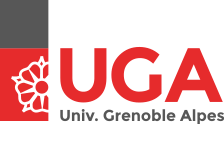- Back
- Location
- Anywhere
- Date Posted
- 27 Sep 2024

- Type
- PhD Project
- Anywhere
- 27 Sep 2024
PhD Position “Light-Matter Interaction within Protein Nanowires: Toward bio-inspired optoelectronics”

NOTE: this position listing has expired and may no longer be relevant!
Position Description
Dates:
Application deadline: Oct. 31, 2018 @ 6:00 pm (CET).
Duration: 36 months
Start date: December 3, 2018
Funding Offer:
Funding type: Contrat Doctoral/PhD Fellowship
Funding amount: 1450 € Net Salary / month
Langages:
Level of French required: B1 (intermediate)
Level of English required: C2 (proficiency)
Opportunity to make your thesis in English
Laboratory:
UMR5249 (CEA/CNRS/Univ. Grenoble Alpes) Chemistry and Biology of Metals Laboratory
UMR5819-SyMMES (CEA/CNRS/Univ. Grenoble Alpes), Molecular Systems and Nanomaterials for Energy and Health laboratory
Host institution:
UGA: Université Grenoble Alpes
CEA: French Alternative Energies and Atomic Energy Commission
CNRS: French National Center for Scientific Research
Doctoral Dchool @ UGA:
EDPHys: Doctoral School of Physics – ED N°47
Annual tuition fee: 400 € / year
Introduction & Context:
Amyloid fibers are quasi-1D nano-objects with high aspect ratio (Length / Diameter ~ 4000) [1,2]. Resulting from the self-assembly of proteins, these fibers are particularly well-suited testbeds to study bottom-up approaches aiming at developing of hierarchically self-organized functional biomaterials across multiple length scales (Nano-> Meso -> Micro-scales). We have recently developed bionanowires allowing long-range (over several microns) electronic transfers thanks to a bioinspired architecture inherited from bacterial microfilaments [3]. Just as bacterial filaments allow the exchange of electrons between the external environment and enzymes within the bacteria, these bio-inspired protein nanowires allow the transport of electrons between a glassy carbon electrode and an enzyme over distance of several microns [3,4]. Beside electron hopping between redox centers on the surface of our bio nanowires, amyloid fibers, which serve as template for the redox centers, possess intrinsic charge transport abilities. The two main mechanisms that be envisaged are protonic conductivity [5] due to a water network on the fiber surface or electronic conductivity through (pi-pi stacked) aromatic side-chains within the fibers.
Rationale:
This PhD research project aims at investigating the various charge transport mechanisms at work within these bionanowires and their interplay. Light effects will be investigated not only to get deeper insight into the (electron/Ion/proton) transport mechanisms but also to explore new optoelectronic properties of these bionanowires. The research project relies on a truly interdisciplinary approach, which will associate nanoelectronic experiments to structural biology characterization and protein engineering. The selected PhD candidate will be embedded into the 2017-2020 public collaborative research project BioNis [6] supported by the French National Agency of Research (ANR) under the Grant # ANR-17-CE09-0013. Importantly, the PhD student will not be in charge of the protein engineering; an advanced biochemistry task that will be performed by others experts of our labs. The required skills are in molecular electronics and nanosciences, the PhD candidate being mandatorily opened to perform basic biochemistry experiments (e.g. triggering and mastering the self-assembly of bionanowires)
Bibliography:
A few selected references (over 2016-2018 period) resulting from the scientific production of the hosting labs (UMR5249-LCBM and UMR5819-SyMMES)
[1]: T. Doussineau et al., Angew. Chem. Int. Ed. 55, 2340-2344 (2016). DOI: 10.1002/anie.201508995.
[2]: J. Pansieri et al., Chem. Sci. 9, 2791-2796 (2018). DOI: 10.1039/c7sc04542e.
[3]: L. Altamura et al., Nat. Chem. 9, 157-163 (2017). DOI: 10.1038/nchem.2616.
[4]: S. Rengaraj et al. Angew. Chem. Int. Ed. 56, 7774-7778 (2017). DOI: 10.1002/anie.201702042.
[5]: E.B. Trigg et al., Nat. Mater. 17, 725-731 (2018). DOI: 10.1038/s41563-018-0097-2.
[6]: ANR’s Collaborative Research project BioNIcs: http://www.agence-nationale-recherche.fr/en/anr-funded-project/?tx_lwmsuivibilan_pi2%5BCODE%5D=ANR-17-CE09-0013
About the PhD co-supervisors
Dr. Vincent Forge:
https://www.researchgate.net/profile/Vincent_Forge
Dr. Patrice Rannou:
https://www.researchgate.net/profile/Patrice_Rannou
ORCID: http://orcid.org/0000-0001-9376-7136


